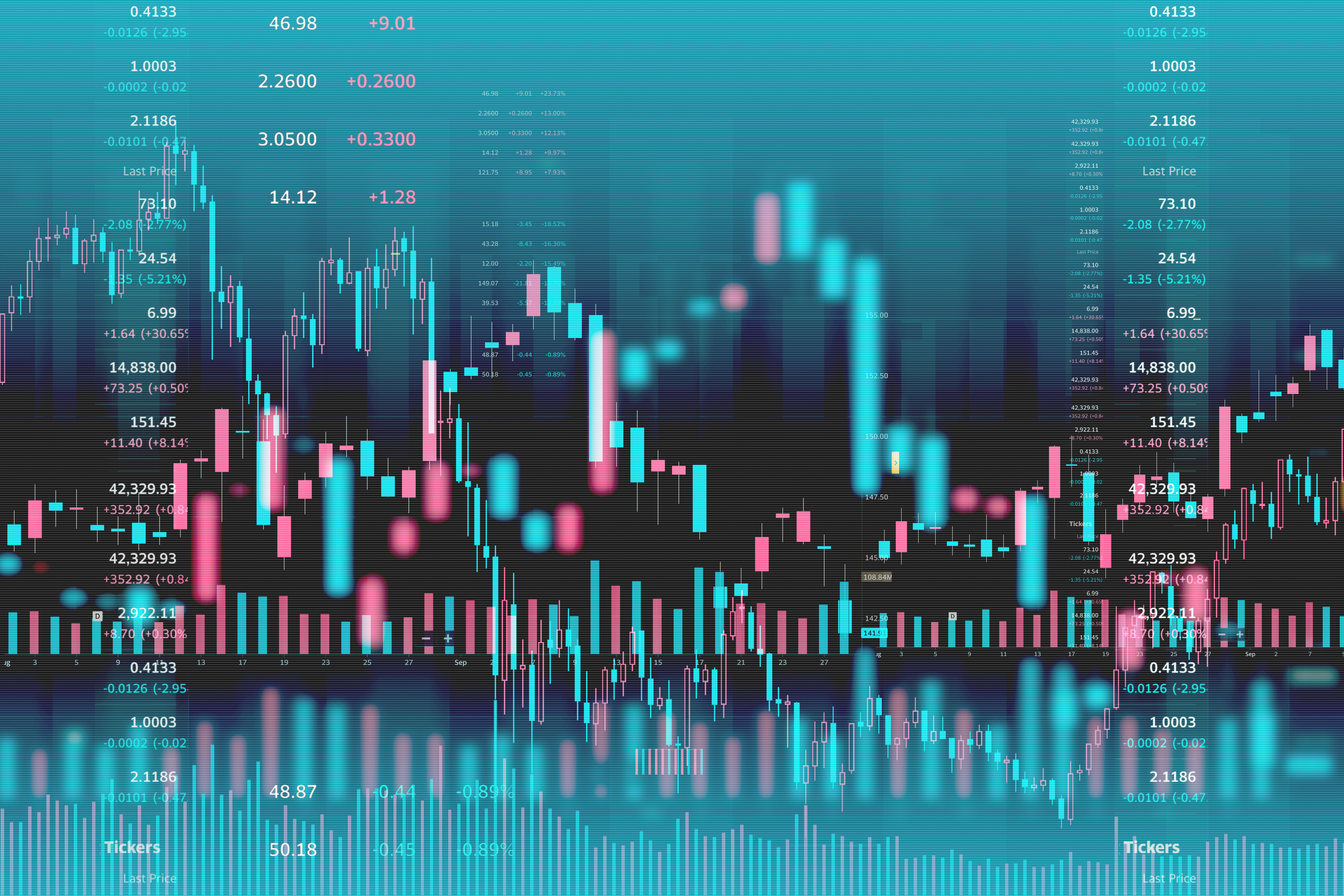Global View Investment Blog
Why Market Volatility is Normal, and Staying the Course is Critical
In today’s uncertain economic environment, market volatility is as normal as it is inevitable due to uncertainty. Peaks, valleys, and unpredictable changes in direction are not just possible but should be expected. The same volatile currents that can cause anxiety among investors can also create golden opportunities for those with the discipline to navigate them thoughtfully.
As fiduciary financial advisors at Global View Investments, we must help our clients understand the nature of these market ups and downs and ensure they make informed decisions based on pursuing their long-term investment goals.
In this article, we’ll explore the following topics:
- Why is Market Volatility Normal?
- What Are The Pitfalls of Being Reactionary During Market Volatility?
- How Does Fiduciary Duty Impact Managing Volatility?
- Should I Retire During Periods of Market Volatility?
- Why is Staying the Course During Volatile Times so Important?
Don’t become a retirement horror story! Read our Quick Guide: “Threats to a Successful Retirement Story.”
Why is Market Volatility Normal?
Market volatility is a standard component of a healthy economy. It's the nature of markets to fluctuate and adjust based on numerous factors, including economic data, geopolitical events, changes in industry or sector outlooks, and investor sentiment. A market without volatility would be static, unresponsive, and lack the potential growth we have gotten used to – far from ideal from an investment perspective.
When market volatility increases, it's critical to remember that this is simply a part of the investment cycle. It's a natural response to shifts in economic conditions and their impact on companies earnings. It is not a reason to abandon a carefully constructed portfolio of securities.
The Pitfalls of Being Too Reactionary to Market Volatility
As a high-net-worth, high-income earner, being reactionary to the financial markets, particularly during times of economic instability, can lead to several potential pitfalls, such as:
- Emotional Decision-Making: Reacting to market events often means making decisions based on fear or greed rather than following disciplined investment principles. This can lead to rash decisions like panic selling or impulsive buying.
- Market Timing: It is extremely challenging to time the markets accurately and consistently. As the saying goes, “No one rings a bell at the top and bottom of market cycles.” Tops and bottoms are next to impossible to predict. Consequently, most market timers get out late and get back in late. They incur much loss and miss a large percentage of the recovery.
- Short-Term Focus: Reacting to current market conditions often shifts your focus to the short term. However, long-term investing has proven to be more successful over time. Short-term market movements should not impact long-term investment strategies, mainly if your financial needs and goals have stayed the same.
- Increased Costs: Reacting to short-term market movement typically results in more trading, which generates additional transaction costs. These costs add up over time and negatively impact net returns.
- Risk of Capital Loss: If you sell your assets during a market downturn, you may lock in realized losses and miss out on eventual recoveries. Markets have always recovered over the long term, and investors who stay the course often see their portfolios recover.
- Asset Allocation Disruption: Constantly reacting to the market could lead to frequent changes in your asset allocation. This can disrupt your risk-return balance and expose you to even greater risk or lower returns than you initially planned for.
- Stress and Anxiety: Being a reactionary investor often involves constantly monitoring the markets and stressing about the depths and durations of market downturns. This non-controllable can lead to unnecessary stress and anxiety, negatively affecting your decision-making abilities and overall quality of life.
Global View Tip: As a high-net-worth individual, your best approach is to have a diversified portfolio that aligns with your risk tolerance and long-term financial goals. Regular consultation with an experienced financial advisor can also help keep emotions in check and ensure investment decisions are based on disciplined principles rather than emotions triggered by market volatility.
Fiduciary Duty and Management of Market Volatility
As fiduciary financial advisors, we operate under a duty of trust, always placing your financial interests ahead of ours. When markets become volatile, the critical part of our job is not eliminating the volatility – that would be impossible – but managing its impacts on pursuing your financial goals.
Fiduciary financial advisors are also responsible for ensuring that you are armed with a comprehensive understanding of market conditions, the factors influencing them, and how they impact the pursuit of your financial objectives.
Global View Tip: We take a personalized approach to understanding your financial goals, risk tolerance, and time horizon. This enables us to create custom-tailored wealth management strategies that acknowledge market volatility and leverages it to your benefit. For example, down markets are usually significant buying opportunities.
Market Volatility and Retirement Planning
Here are some common questions that successful individuals either nearing retirement or recently retired will ask us regularly. You aren't alone if you’ve had similar questions or concerns about your retirement assets and financial security.
- How can I ensure my portfolio maintains its value during periods of significant market volatility and continues to produce sufficient income to maintain my standard of living?
- With the current market instability, how can we adjust my asset allocation strategy to manage risks better and preserve my wealth while still covering the costs of my distributions (withdrawals, when applicable)?
- Given the current economic uncertainties, how can my retirement asset management strategy effectively utilize tax-efficient strategies to safeguard my wealth from potential erosions due to market volatility and taxes?
One of the overarching strategies you can deploy during periods of market volatility is increasing your portfolio’s diversification. Volatility in specific asset classes should only impact a small percentage of your total assets. Diversification is the number one strategy for managing risk. If one asset class performs poorly due to market volatility, another asset class may produce positive returns for a more balanced outcome.
Global View Tip: As your Greenville retirement planning professionals, we will collaborate to ensure your portfolio is diversified and managed to minimize the impact of market volatility.
Staying the Course is Critical
Market volatility can be unsettling, but staying focused on pursuing your financial goals is critical. Overacting to short-term fluctuations can lead to better-timed buy and sell decisions. The key is to stick with your long-term plan, designed to weather the fluctuations in market value (realized and unrealized gains and losses).
Staying disciplined during periods of market volatility can be challenging but necessary. When the markets are turbulent, worrying about your investments is a normal thing to do. However, making impulsive, emotional decisions based on short-term market fluctuations can harm the pursuit of your long-term financial goals.
Remember, investing based on long-term goals is a marathon and not a sprint.
Global View Tip: As fiduciary financial advisors in Greenville, we’re dedicated to helping you maintain perspective, make informed decisions, and stay the course during market volatility. Market volatility is a normal condition of long-term investing. Navigating through periods of volatility requires knowledge, patience, and the right partner. If you want a true partnership with your financial advisory team, we welcome the opportunity to describe why we should be that partner.

Written by Matthew Crider
Matt is a CERTIFIED FINANCIAL PLANNER™ professional who has been in the financial advisory business since 2008. He holds a BA in Marketing and Management from the University of Cincinnati and his MBA from Clemson University. Prior to Global View, Matt began his career with Fidelity Investments. His specialties at Global View include asset accumulation and investment strategies; college funding strategies; budgeting discipline and analysis; multi-generational planning; and life event changes, such as marriage, kids, home purchase, retirement, etc.
Are you on track for the future you want?
Schedule a free, no-strings-attached portfolio review today.
Talk With Us






